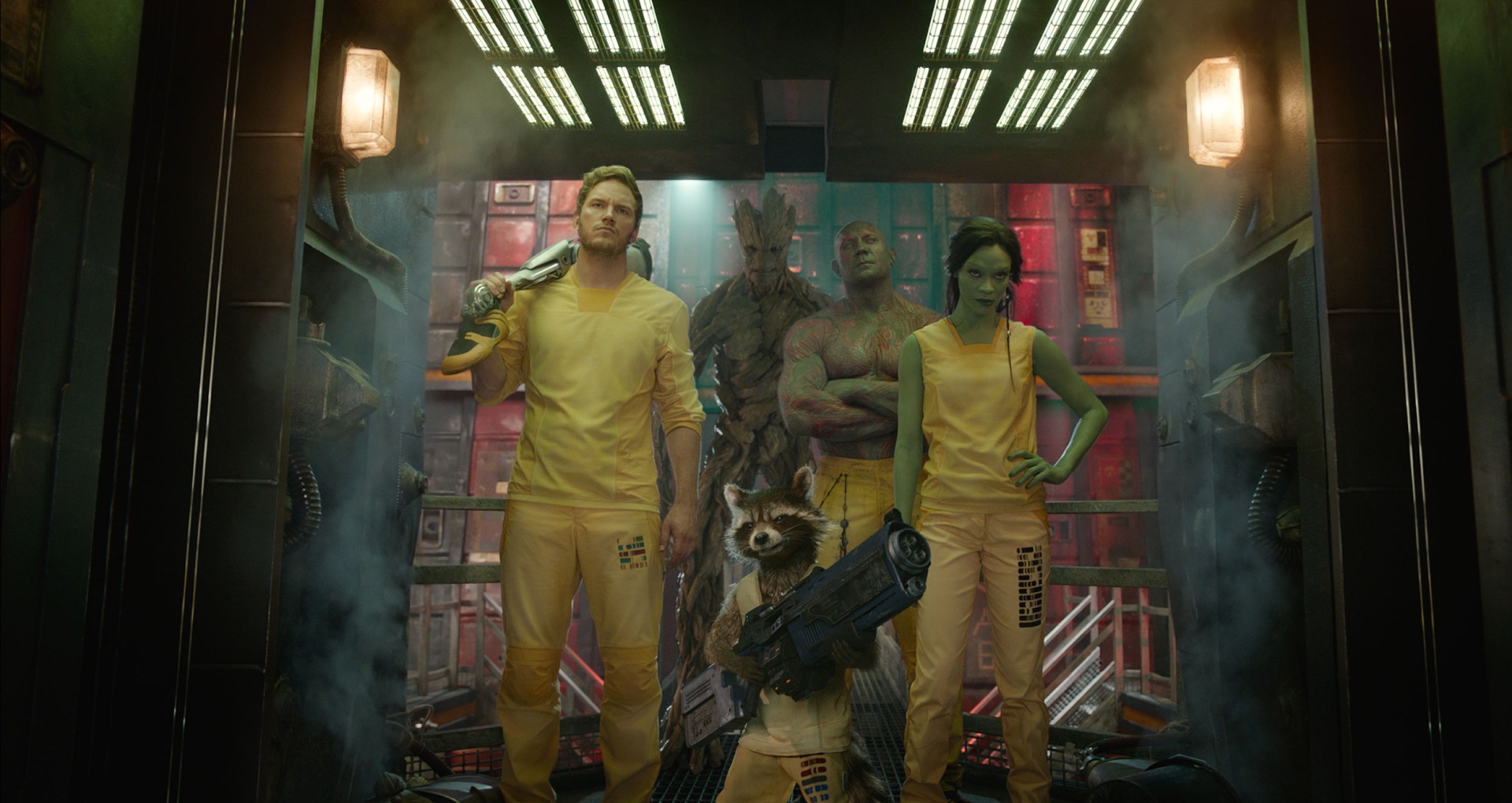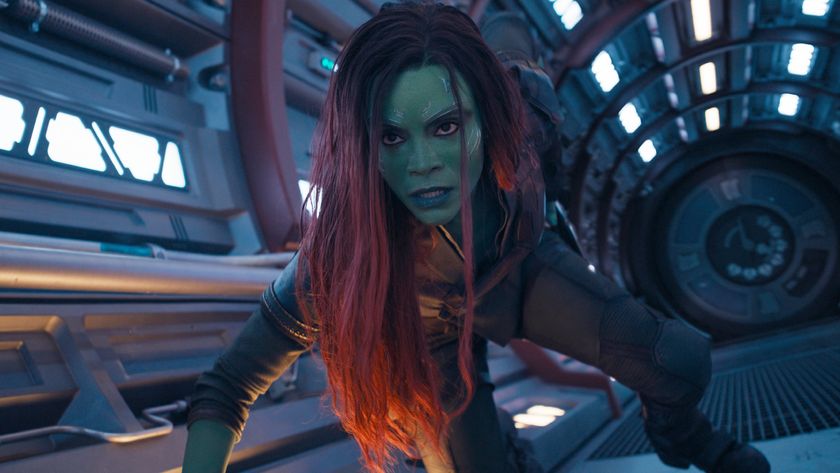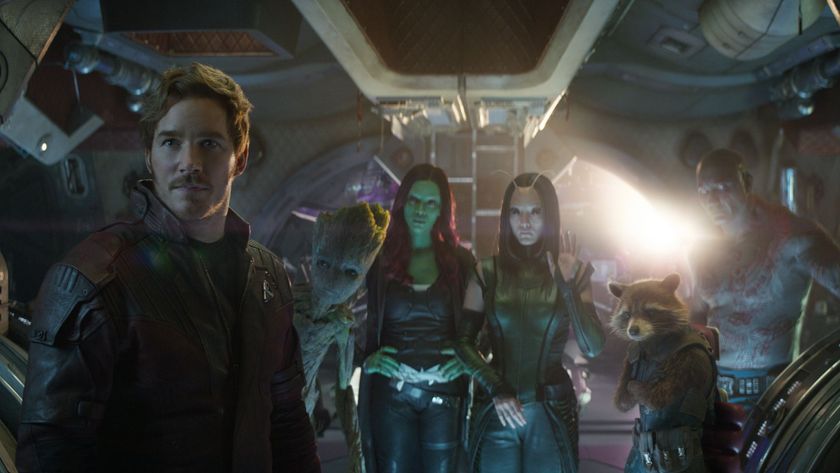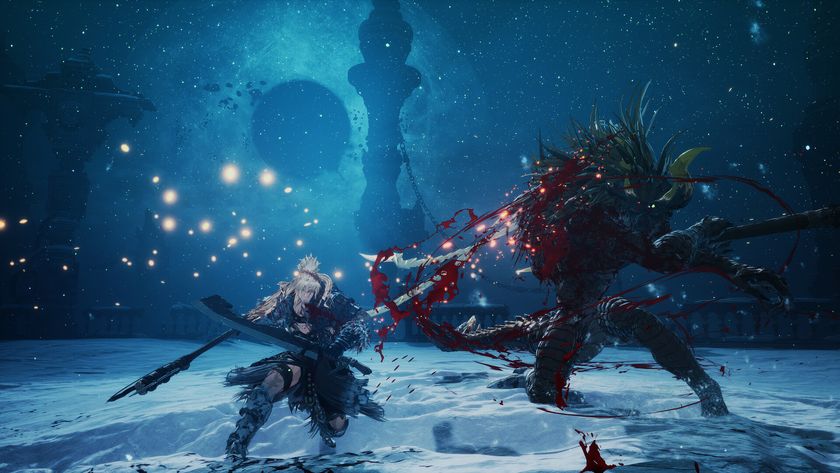Why you can trust 12DOVE
ALIENS ASSEMBLE
It’s hard to begrudge Marvel for wanting to get the party started. The tenth entry in its increasingly rich (in both senses) Cinematic Universe, Guardians Of The Galaxy sees the studio taking to the dancefloor, partying like it’s 1977. Closer in spirit to old-school blockbusters than the superheropowered modern era, the irreverence of James Gunn’s movie achieves pure popcorn pleasure.
It’s all the more remarkable for being such an odd affair. While the Marvel Cinematic Universe has prided itself on diversity – given a tonal range that so far encompasses wisecracking comedy (Iron Man), space opera (Thor) and conspiracy thriller (Captain America: The Winter Soldier) – the counterweight of conformity has kept things in check. In every one of its films, a superheroic figure has done superheroic things. Guardians Of The Galaxy is different, and makes a virtue of its difference. A genuine ensemble movie, it is a space-age Dirty Dozen with five anti-heroes, the self-acknowledged losers who seldom get to pilot their own movie. That the result is Marvel’s freshest, funniest movie to date – not to mention a bigger earner than all bar two of its predecessors in the MCU – shows the value of cutting loose once in a while.
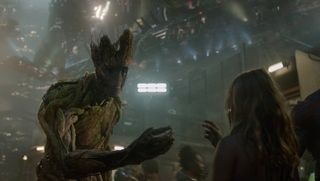
It feels instantly familiar, with a storytelling ease which knows that there is no point over-complicating a film whose stars include a walking tree and a talking raccoon. Its loose chase/quest narrative is energised by the adolescent thrill of the Golden Age of Blockbusters, when audiences were exhilarated by the sense that anything goes when you walk into a cinema. Like so many of the late Seventies/ early Eighties classics, the dramatis personae here are rogues and freaks – and there’s even room for a cameo from one of that decade’s most divisive icons.
The only blockbusters of recent times even comparable are Guillermo del Toro’s brace of Hellboy films, yet Marvel has entrusted this to a director arguably more idiosyncratic than the Mexican auteur. James Gunn’s career had previously flown outside the natural arc of a Marvel director, being neither established name nor reliable TV helmer. Instead, his films – whether as writer for Troma, or as the director of Slither and Super – have marked his out as an anarchic mindset intent on not pleasing anybody bar himself.
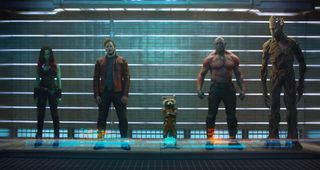
That cult attitude is prevalent right from the credits, when a Nolan-esque tragic backstory is immediately subverted, as Chris Pratt’s Peter Quill (aka Star Lord) boogies across an alien planet to the strains of Redbone’s ‘Come And Get Your Love’. The statement of intent couldn’t be clearer and Gunn follows through, puncturing pomposity like a kid popping balloons, be it the greater quantity and quality of swearing for a modern blockbuster – again, a joyous throwback to pre-pressure group times – to the bracing sarcasm of the characters.
And where post-Nolan comicbook movie has become obsessed with metaphor, Gunn makes a running gag out of the realisation that mainstream audiences don’t always want allegorical layers. In Gunn’s fictional universe, different senses of humour don’t always sit comfortably and off-the-wall ideas – ships that combine to form giant nets; a mining colony inside the severed head of an ancient god – don’t need any kind of cultural resonance beyond being really cool. Nor does every plot beat have to be metronomically timed to the story arc: a bit of business involving a prosthetic leg displays a gleeful disregard for cookie-cutter vanilla screenwriting.
And yet, because he’s making a big Disney-backed movie intended for big kids of all ages, Gunn is forced to behave. His anarchic spirit isn’t so much tamed as carefully channelled, echoing a story in which thieves, bounty hunters, assassins and thugs find strength, both moral and literal, in each other’s comradeship. That’s a better, nobler message than most superheroes manage, and one that is a whole lot of fun to watch. It is also a reminder not to pigeonhole, with Gunn’s casting a genuine marvel even for a studio in the habit of re-defining its stars’ careers.
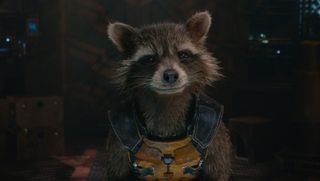
Chris Pratt completes the process begun in The LEGO Movie of turning his loveable, laid-back sitcom shtick into that of a mainstream action hero: Star Lord is the coolest space adventurer since Han Solo, and a better dancer, too. World champion wrestler Dave Bautista might have anticipated a Hollywood career playing sullen heavies; instead, as Drax, he proves to be the film’s genial soul. Fellow lunk Vin Diesel goes one better with a masterclass in line reading, investing the limited vocabulary of (I am) Groot with real diversity. Bradley Cooper, once cast as Face, finds his best role to date as a voice. Only Zoe Saldana is short-changed, largely because Gamora is such a reprisal of her superior turn in Avatar.
But she’s the exception, in a film offering such diverse treats as a bald Karen Gillan kicking ass; Peter Serafinowicz finally being seen as well as heard in a sci-fi blockbuster; and Gunn regular Michael Rooker’s welcome dose of couldn’t-careless attitude. They might be custodians of a multi-billion dollar industry, but it’s nice to see Marvel hand the keys to an altogether odder bunch of Guardians.
Gunn’s (Blu-only) detailed chat-track references deleted scenes that sadly aren’t among those included; a Making Of, FX featurette and look at Age Of Ultron round out a no-more-than-solid package.
Extras
- Commentary (BD)
- Featurettes (BD)
- Deleted scenes
- Gag reel (BD)
Most Popular




